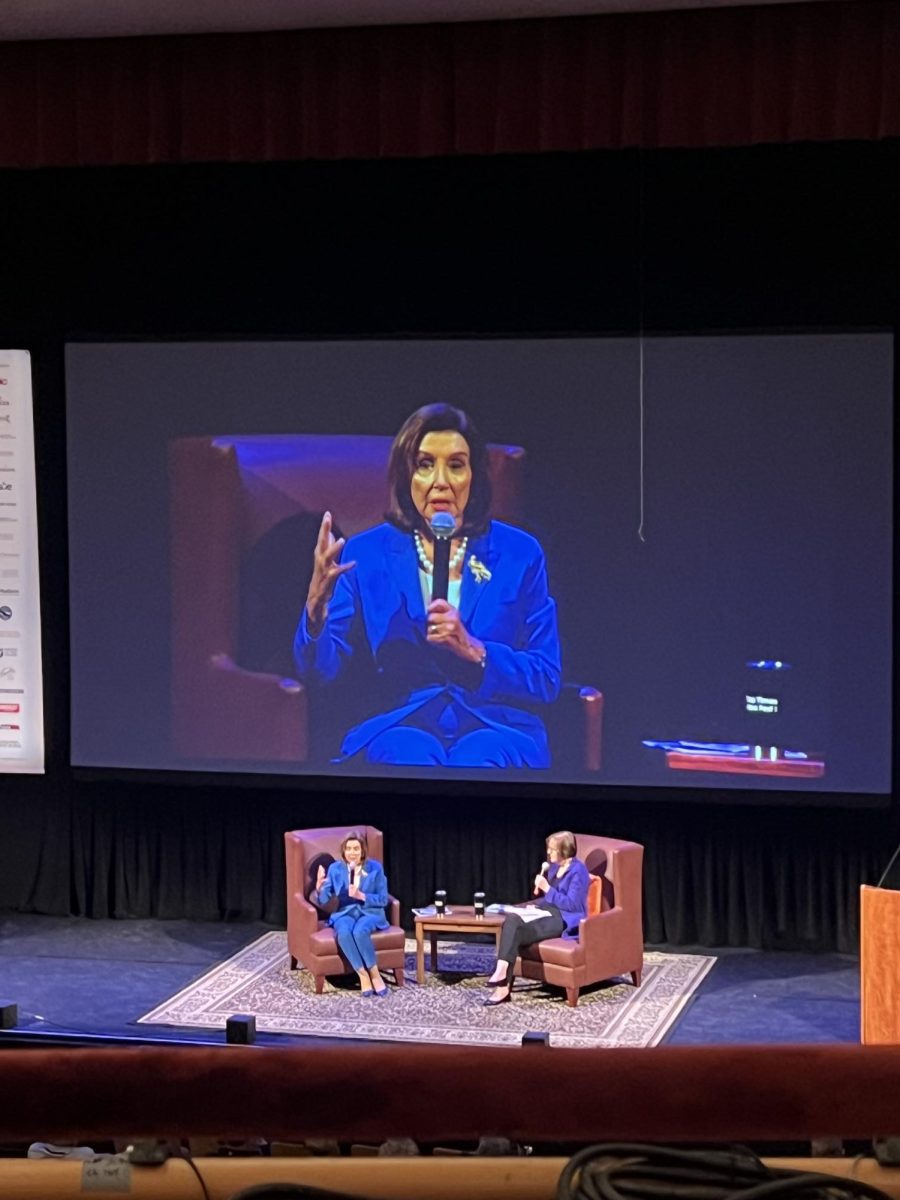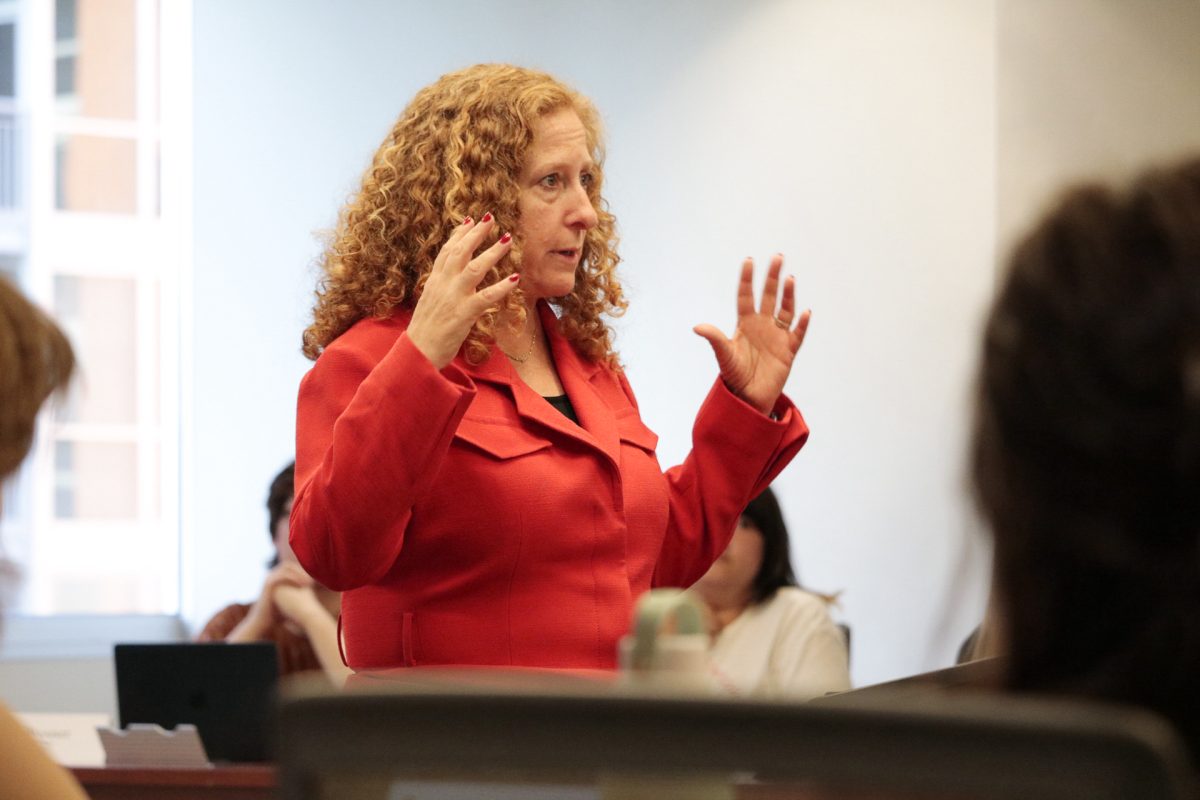After several down years, University of Wisconsin officials have good news for graduating seniors: the job market looks good.
According to career planning directors in the College of Letters & Science, the School of Business and the School of Engineering, spring 2006 is a prime time to graduate.
"It's really strong. It's about the strongest we've seen in about six years," Steve Schroeder, director of the Business Career Center, said. "As the national economy gets better, the outlook for graduates gets better."
Leslie Kohlberg, director of College of Letters & Science Career Planning, said employers plan to hire 14 percent more college graduates this year than in 2005.
On top of that, she said, 273 employers participated in UW job fairs this academic year, up from 176 the previous year.
"It's an employee market in a lot of instances," Kohlberg said, adding most L&S seniors have a lot of possible opportunities lined up at this point in the semester. "We're getting very good feedback from employers about students being just a well-prepared group with a positive job market."
And in the College of Engineering, Associate Director of Career Planning Susan Piacenza said engineering graduates can expect their starting salaries to be 6-8 percent higher than last year.
According to Eric Grosso, statewide economist for the Wisconsin Department of Workforce Development, the upturn in job opportunities is a cyclical result of employers' slow hiring rates over the past few years.
"Over the last few years, when the hiring was slower, I think [companies] ended up losing a lot of people," Grosso said. "When they lost people, they didn't have adequate replacements available. They paid for that a little bit, [and] employers are starting to understand that."
While all of this certainly comes as good news to soon-to-be UW alumni, concerns of a so-called "brain drain" arise when a significant number of graduates take their skills across the border to jobs outside Wisconsin.
"We're going to be pumping out another 32,000-33,000 grads in another two weeks," UW System spokesperson Doug Bradley said. "We'd love to have another 80 percent of those … get jobs here in Wisconsin."
One of those students is UW senior Sam Boebel, originally from Brookfield, Wis., who will leave the Badger State this summer for what he sees as a better career opportunity in Chicago.
"Through guidance, I met with one of the guides in the Business Career Center," Boebel said. "And she said in order to get a successful career in business, what you have to do is go to one of the largest cities: New York, Chicago or Los Angeles, because you need networking capabilities to succeed."
Brain drain?
While the highly ranked UW System certainly is a tremendous asset to Wisconsin, it does little good if the state cannot offer competitive job opportunities and allows its educated workforce to relocate.
Grosso, however, argued brain-drain concerns are not unique to Wisconsin and said the state has, overall, been successful in retaining college graduates.
"The majority of states in the U.S. have brain drain," Grosso said. "An educated workforce is pretty highly mobile, and that goes for the educated anywhere in the United States."
According to Grosso, studies indicate the more educated a person is, the higher the likelihood that person will work in a different state from where he or she graduated high school.
It makes sense, he added, because education creates opportunity, which in turn encourages mobility.
"UW grads are highly coveted nationally, so there's a lot of recruiting that goes on on these campuses all throughout the UW System," Grosso said. "Recruiters can come all throughout the country, and they have to be competitive with their offers."
So, Grosso said, the Department of Workforce Development focuses on ensuring a climate conducive to the right kind of high-paying jobs that attract college graduates.
And so far it's apparently paid off — according to Grosso, the state is retaining more graduates than 10 years ago because he said a lot of the job growth has been in areas commensurate with the university's strongest programs.
The omnipresent promises of trendy job markets like Atlanta or Denver, Grosso said, and larger metropolitan areas not far from Wisconsin's borders, like Chicago or Minneapolis, still pose a challenge for retention efforts in Wisconsin.
"They're probably just going right over the borders to the Twin Cities and Chicago," he noted. "We don't begrudge them that. … You're talking about two very large metropolitan areas that are job-rich, job-dense areas, and they're very attractive to any college grad."
With a mind toward establishing itself as the economic engine for the state, it has long been a top goal of the UW Board of Regents to focus on providing the workforce with as many baccalaureate-degree holders as possible.
But according to Regent President David Walsh, problems of retention are overstated. The real issue to him, with which Grosso agreed, is the difficulty Wisconsin has in attracting college graduates from out of state, in turn making retention all the more important.
"Our biggest challenge is to develop the businesses and the jobs that will attract out-of-state people," Walsh said. "And with our weather — and unless you're indigenous — you damn well better have some high-paying jobs or some interesting jobs."
Given the number of college graduates leaving the state for what they see as bigger and better opportunities, however, Grosso said a significant amount of UW alumni eventually make their way back home.
Among them likely will be Boebel, who said he hopes to return north after gaining some experience in the Windy City.
"We often hear from students after they've been away, that … 20-25 percent that do leave want to come back in a few years," Piacenza said. "[And] our 2004-2005 statistics as to where students accepted jobs … was that 40 percent stayed in Wisconsin — no brain drain there."
The diversity issue
In an age where seemingly all universities and all employers are aiming for a more diverse work environment, the predominantly white UW has faced some hesitation on the part of employers recruiting in Madison.
"Diversity on this entire campus and the College of Engineering is a significant issue and we are working very, very hard on diversity issues," Piacenza said, adding all of the companies cited in recent media reports have resumed recruiting at UW. "[Employers] express it as a concern, but they haven't pulled their recruiting from the College of Engineering and they continue to work with us."
And according to Schroeder, companies stopped going to other places on campus, but never cut off access to the School of Business.
Piacenza, Schroeder and Kohlberg all agreed the lack of diversity on the UW campus is an issue, but insisted their respective colleges — and the university as a whole — are making sincere efforts to address the situation.
"I think the university is well aware, as is this state, that attracting employers who are interested in diversifying their workforce is a challenge," Kohlberg said. "[But] we're too big a place with too many good things happening to really see a significant or obvious decline of employers."
For now, anyway, the recruiters are coming in droves and the economy in Wisconsin is headed in the right direction. For this year's graduating class, it looks like a good time to be a Badger.












